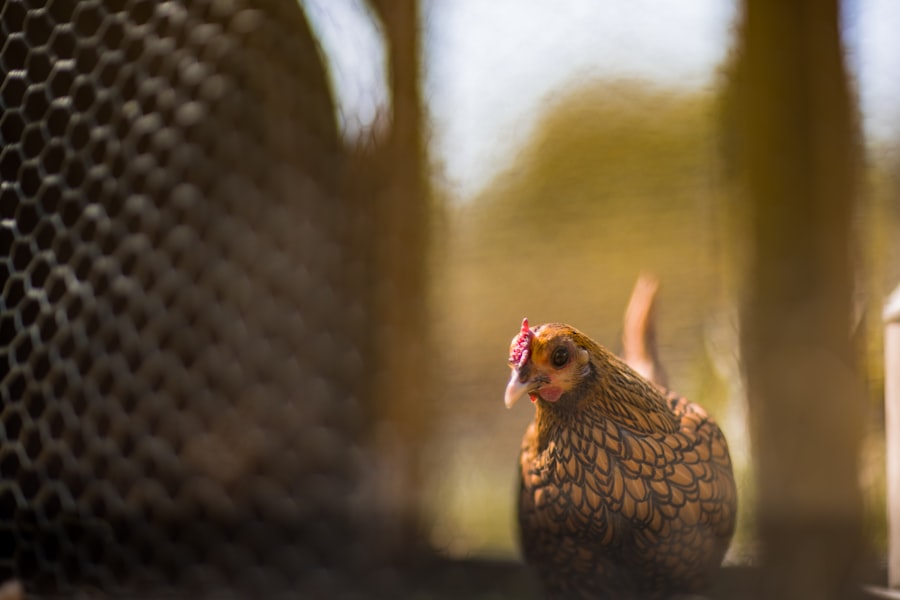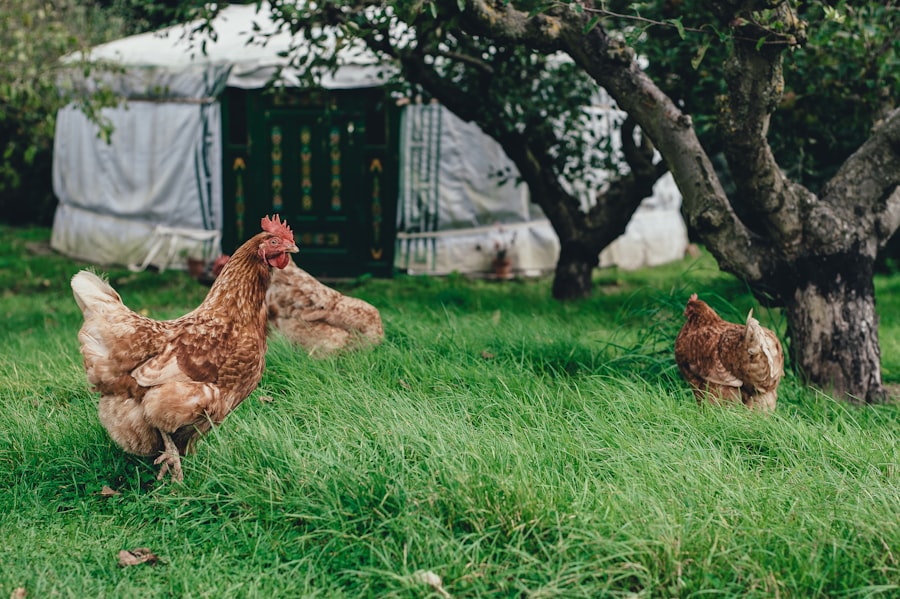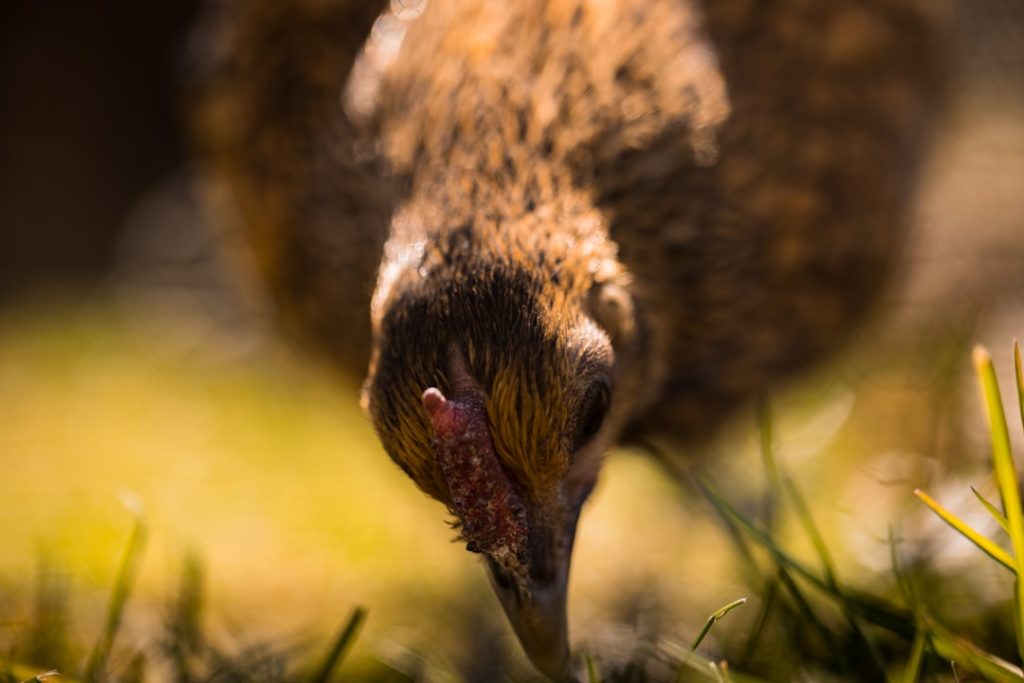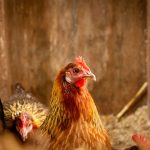Chickens are natural foragers with an innate ability to control insect populations in gardens and yards. Their constant pecking and scratching behavior effectively reduces insect numbers, minimizing the need for chemical pesticides. These birds are particularly skilled at targeting common garden pests, including slugs, snails, beetles, and small rodents.
Their acute vision and agility make them efficient hunters, capable of covering large areas quickly. Allowing chickens to roam freely in a yard leverages their natural instincts to maintain ecological balance. Chickens play a vital role in disrupting insect life cycles.
They consume eggs of pests such as beetles and caterpillars, preventing them from hatching and damaging plants. Additionally, chickens disturb soil and leaf litter, exposing insects and their larvae to predators and adverse environmental conditions, which can limit their survival. This disruption significantly impacts pest populations over time.
Chickens serve as valuable allies in pest control, offering a sustainable and environmentally friendly approach to managing garden insects.
Table of Contents
- 1 Benefits of Allowing Chickens to Forage in Your Yard
- 2 Types of Insects Chickens Can Help Control
- 3 How to Encourage Chickens to Target Problematic Insects
- 4 The Impact of Chickens on the Local Ecosystem
- 5 Considerations for Keeping Chickens in Your Yard
- 6 Alternatives to Chickens for Insect Control in Your Yard
- 7 FAQs
Key Takeaways
- Chickens play a valuable role in insect control by foraging for insects in the yard, reducing the need for chemical pesticides.
- Allowing chickens to forage in your yard can provide benefits such as natural pest control, fertilization, and entertainment.
- Chickens can help control a variety of insects including ants, beetles, grasshoppers, and ticks, making them a valuable asset in pest management.
- Encouraging chickens to target problematic insects can be achieved by providing them with a diverse foraging environment and supplementing their diet with insect-rich treats.
- Chickens can have a positive impact on the local ecosystem by reducing the population of harmful insects and contributing to soil health through their scratching and fertilization.
- Considerations for keeping chickens in your yard include providing adequate space, shelter, and protection from predators, as well as adhering to local regulations and ordinances.
- Alternatives to chickens for insect control in your yard include ducks, guinea fowl, and beneficial insects such as ladybugs and praying mantises.
Benefits of Allowing Chickens to Forage in Your Yard
Soil Health and Maintenance
Chickens are natural fertilizers, and their constant scratching and pecking behavior helps to aerate the soil and distribute nutrients. As they forage, chickens will consume a variety of plants, weeds, and grasses, helping to keep vegetation in check and reducing the need for manual maintenance.
Environmental and Practical Benefits
Their droppings also provide valuable nutrients for the soil, contributing to overall soil health and fertility. In addition to their practical benefits, chickens can also provide entertainment and companionship for homeowners.
Therapeutic and Educational Value
Many people find the presence of chickens to be calming and therapeutic, and they can serve as an educational opportunity for children and adults alike. Watching chickens explore and interact with their environment can be a source of joy and relaxation.
Sustainable Living
Allowing chickens to forage in your yard can also be a sustainable way to produce fresh eggs for your household, further enhancing the self-sufficiency and sustainability of your home.
Types of Insects Chickens Can Help Control

Chickens are voracious insect eaters and can help control a wide range of common garden pests. Some of the most notable insects that chickens can target include slugs and snails, which are notorious for damaging plants by feeding on leaves and stems. Chickens are particularly effective at hunting down these pests, as they are able to seek them out in hidden or hard-to-reach areas such as under foliage or in damp soil.
Additionally, chickens can help control beetle populations, including destructive pests such as Japanese beetles, which can defoliate plants in a matter of days. Chickens are also adept at controlling caterpillars, which can wreak havoc on vegetable gardens and ornamental plants. By consuming the eggs and larvae of caterpillars, chickens can help prevent infestations before they become widespread.
Furthermore, chickens can target ants, flies, grasshoppers, and even small rodents, providing a comprehensive approach to insect control in a yard or garden. Their diverse diet and relentless foraging behavior make them valuable allies in managing a wide range of insect pests.
How to Encourage Chickens to Target Problematic Insects
While chickens are natural foragers and will instinctively seek out insects as part of their diet, there are several ways to encourage them to target specific problematic insects in your yard or garden. One approach is to create habitat features that attract insects favored by chickens, such as providing areas with dense vegetation or mulch where slugs and snails may congregate. By creating environments that support insect populations, you can increase the likelihood that chickens will encounter and consume these pests during their foraging activities.
Another strategy is to supplement the chickens’ diet with specific foods that can help control targeted insect populations. For example, offering mealworms or other live insects as treats can encourage chickens to actively seek out these pests in the environment. Additionally, providing access to areas with standing water can attract mosquitoes and other water-dwelling insects that chickens may consume.
By strategically managing the environment and diet of your chickens, you can enhance their ability to target problematic insects and contribute to effective pest management.
The Impact of Chickens on the Local Ecosystem
The presence of chickens in a yard or garden can have a significant impact on the local ecosystem. By controlling insect populations, chickens help maintain a balance in the food web, preventing certain pests from reaching damaging levels that could disrupt the natural dynamics of the ecosystem. This can have cascading effects on other organisms that rely on these insects as a food source, ultimately contributing to a more stable and resilient ecosystem.
Chickens also contribute to soil health through their scratching and pecking behavior, which helps aerate the soil and distribute organic matter. Their droppings provide valuable nutrients that support microbial activity and contribute to overall soil fertility. This can have positive effects on plant growth and diversity, as well as on the health of other organisms that rely on healthy soil conditions.
However, it’s important to consider the potential negative impacts of introducing chickens to a local ecosystem. Chickens have the potential to disturb native plant communities and may contribute to soil erosion in certain environments. Additionally, their foraging behavior may impact other wildlife species that share the same habitat.
It’s important to carefully consider the potential consequences of introducing chickens to a new environment and to manage their presence in a way that minimizes negative impacts on the local ecosystem.
Considerations for Keeping Chickens in Your Yard

Check Local Regulations and Zoning Laws
Before bringing chickens onto your property, it’s essential to check local regulations and zoning laws regarding the keeping of chickens. Many municipalities have specific guidelines regarding the number of chickens allowed per property, coop requirements, and distance from neighboring properties. Ensure you are in compliance with these regulations to avoid any issues.
Consider Space and Shelter Requirements
Chickens need adequate space to roam and forage, as well as a secure coop for protection from predators and the elements. Providing appropriate shelter, food, water, and veterinary care is essential for ensuring the health and well-being of your chickens.
Be Prepared for the Responsibilities of Chicken Ownership
Keeping chickens in a residential area can have potential noise and odor impacts on neighbors. It’s important to take steps to minimize any potential disturbances and be prepared for the time and effort required for caring for chickens. Chickens require daily care, including feeding, watering, cleaning the coop, and monitoring for signs of illness or distress. Ensure you have the time and resources necessary to provide proper care for your flock.
Alternatives to Chickens for Insect Control in Your Yard
While chickens are highly effective at controlling insect populations, there are alternative methods for managing pests in your yard or garden. One option is to encourage natural predators of insects, such as birds, bats, or beneficial insects like ladybugs or lacewings. Providing habitat features such as birdhouses or bat boxes can attract these natural predators to your yard, where they can help control insect populations without the need for chemical pesticides.
Another alternative is to use physical barriers or traps to manage specific insect pests. For example, row covers can be used to protect plants from caterpillars or other pests, while sticky traps can help control flying insects such as aphids or whiteflies. Additionally, cultural practices such as crop rotation or companion planting can help reduce pest populations by disrupting their life cycles or by attracting beneficial insects that prey on pests.
Finally, there are organic pest control products available that can help manage specific insect pests without harming beneficial organisms or the environment. These products may include botanical oils, microbial insecticides, or insecticidal soaps that target specific pests while minimizing impacts on non-target organisms. In conclusion, allowing chickens to forage in your yard offers numerous benefits beyond insect control.
Chickens play a valuable role in maintaining a healthy balance in the local ecosystem by controlling insect populations and contributing to soil health. However, it’s important to carefully consider the potential impacts of introducing chickens to a new environment and to manage their presence in a way that minimizes negative effects on the local ecosystem. If keeping chickens is not feasible or desirable, there are alternative methods for managing insect pests that can be effective while minimizing impacts on the environment.
If you’re considering keeping chickens in your yard to help control insects, you may also be interested in learning about the mating season for turkeys. According to Poultry Wizard, understanding the mating season for turkeys is important for successful breeding and egg production. This article provides valuable information for anyone looking to raise turkeys and maximize their egg-laying potential.
FAQs
What do chickens eat?
Chickens are omnivores and will eat a variety of foods including insects, seeds, grains, and kitchen scraps.
Do chickens eat insects?
Yes, chickens are natural foragers and will actively seek out and consume insects as part of their diet.
How do chickens help keep insects down in the yard?
Chickens help keep insects down in the yard by actively foraging for and consuming insects such as beetles, grasshoppers, ticks, and other pests.
Are there any insects that chickens won’t eat?
Chickens will eat a wide variety of insects, but they may avoid certain stinging or toxic insects such as bees or poisonous caterpillars.
Do chickens also eat beneficial insects?
While chickens may consume some beneficial insects such as ladybugs or earthworms, their foraging can also help control populations of harmful insects that may damage plants or spread disease.
Do chickens need any special care to help control insects in the yard?
Chickens require proper housing, feeding, and protection from predators to thrive and effectively control insects in the yard. It’s important to provide them with a balanced diet and access to fresh water, as well as secure fencing to keep them safe from predators.
Meet Walter, the feathered-friend fanatic of Florida! Nestled in the sunshine state, Walter struts through life with his feathered companions, clucking his way to happiness. With a coop that’s fancier than a five-star hotel, he’s the Don Juan of the chicken world. When he’s not teaching his hens to do the cha-cha, you’ll find him in a heated debate with his prized rooster, Sir Clucks-a-Lot. Walter’s poultry passion is no yolk; he’s the sunny-side-up guy you never knew you needed in your flock of friends!







